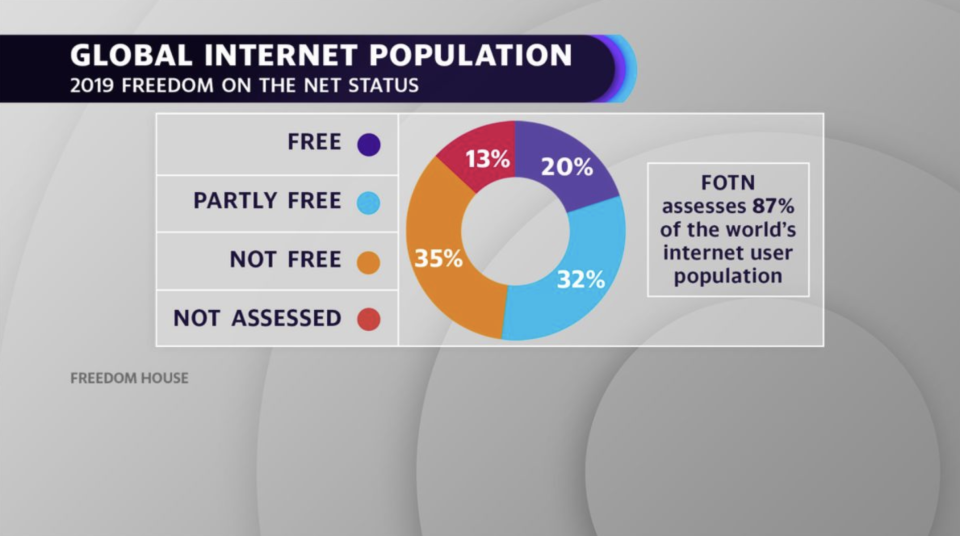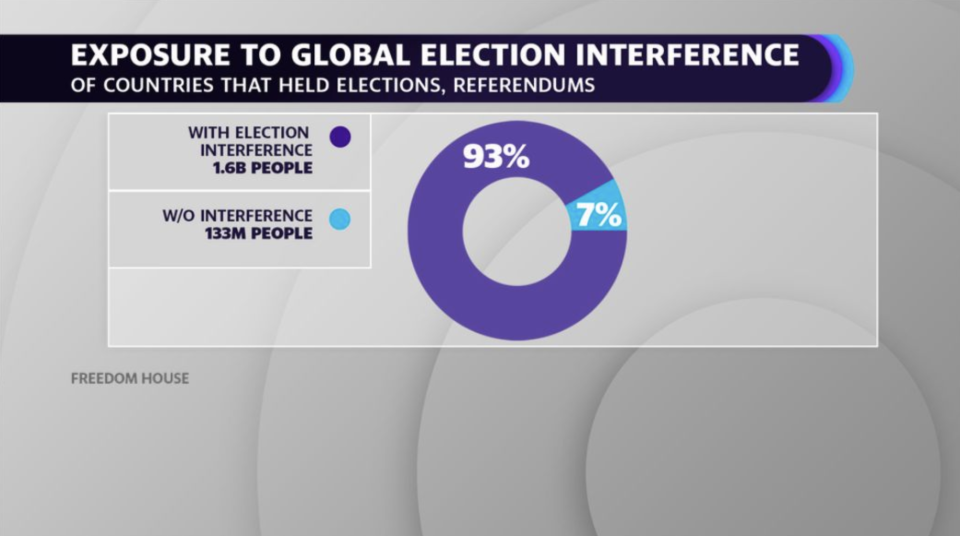'Manufacturing echo chambers': How social media is fueling election manipulation
Governments around the world are increasingly using social media to manipulate elections and track their citizens, according to a new study from Freedom House. The independent watchdog found authorities in countries like Iran and Saudi Arabia are expanding efforts to manipulate internet usage, with China being the worst offender for the fourth year in a row.
The study tracked internet freedom in 65 countries covering 87% of the world’s internet users. Thirty-three of those countries have experienced a decline in net freedom since June 2018. More than 70 analysts contributed to the research, including Adrian Shahbaz, research director for technology and democracy at Freedom House.

“The biggest declines are in countries like Sudan and Brazil,” Shahbaz tells Yahoo Finance’s The Ticker. “These are very different countries. One, Sudan, is where digital technologies played a very important role in bringing down an entire regime. Brazil is where they had the opposite effect, a very negative effect in terms of electing a populist who was very skilled at using misinformation on WhatsApp.”
‘Manufacturing echo chambers’
Shahbaz is referring to Brazil’s presidential election in 2018, where far-right congressman Jair Bolsonaro beat out leftist ex-Sao Paulo mayor Fernando Haddad. He says 59% of internet users in Freedom House’s study live in countries where government authorities manipulate online discussions, and 56% live in countries were political or social content was blocked online.
“The [political] candidates that are willing to bend the rules are using social media better,” Shahbaz explains. “It’s contributing to the rise of populism and far-right movements all around the world, including in some strong democracies. Now, they’re actually manufacturing eco chambers from scratch and building the networks that disseminate a lot of these misleading messages.”
In the case of Bolsonaro’s election, Shahbaz’s research found campaign operatives employed special software to automatically add recipients to WhatsApp groups that targeted voters. Some of those groups averaged more than 1,000 posts per day to disseminate misleading information about Haddad. And the possibility of similar tactics being used in the United States is growing.

The report saw a third straight year of decline in internet freedom in the United States. It found disinformation was prevalent among major political events like the November 2018 midterm elections and the congressional confirmation hearings for Supreme Court Justice Brett Kavanaugh.
“We need to find a middle road,” Shahbaz says. “Banning political ads altogether I don’t think is sustainable. I do think there should be some type of fact-checking because there are going to be obvious cases where candidates are going to abuse the system for their own political gain… In terms of government and actual policy, we are still very much in the 20th century. All of our laws are written decades ago, and it really falls to government but also citizens to think about the future we want to live in and what sort of new laws need to be put in place now so that our rights are being protected online.”
Follow Yahoo Finance on Twitter, Facebook, Instagram, Flipboard, SmartNews, LinkedIn, YouTube, and reddit.

